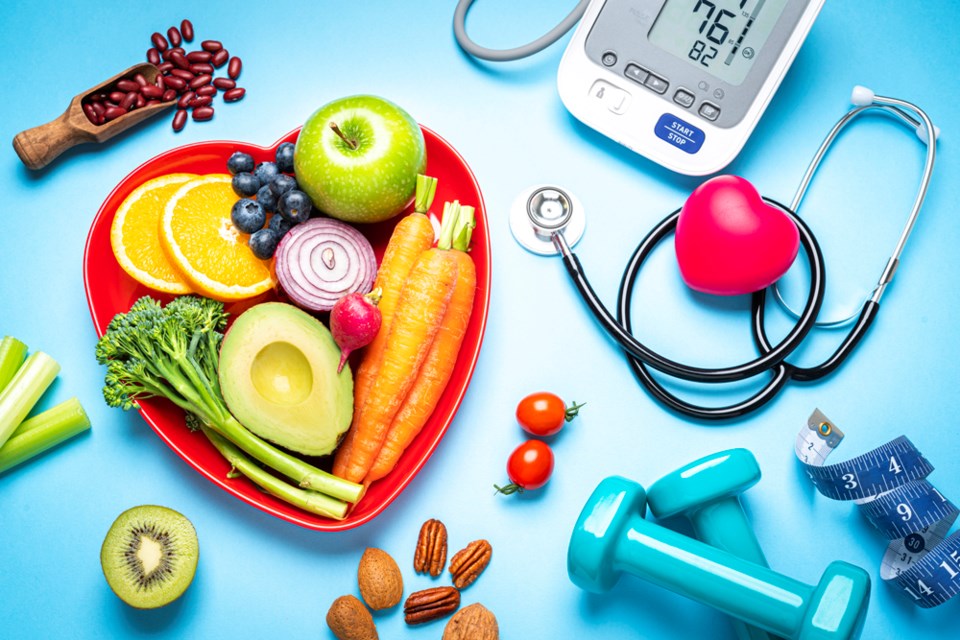February is Heart Month in Canada.
This month is also when we celebrate Valentine’s Day, which is a day to celebrate romantic love with heart symbols, cupids, and yummy chocolate. But the month is also about raising awareness about heart disease and encouraging people to look after their hearts. The month reminds people how important it is to keep healthy and stay informed about the risks of heart-related conditions.
Essentially, rather than merely a symbol of love, the heart is responsible for pumping blood around our body and transporting oxygen and cells to our other organs. The blood takes away waste products and carbon dioxide. Veins carry oxygen-poor blood back to your heart and lungs to start the cycle over again.
The heart is a crucial organ in our bodies, so it is important that we make the right choices to keep our hearts happy and healthy.
Heart disease is among the leading causes of death globally and imposes a significant burden on the health-care system. The Heart and Stroke Foundation of Canada says that “heart disease refers to what is really a group of conditions that affect the structure and functions of the heart and has many root causes.”
The most common type of heart disease is coronary artery disease which affects the blood vessels of the heart. Coronary artery disease is mainly caused by blockages that affect blood flow to the heart muscle, which interrupts the supply of oxygen and other important nutrients.
Some of the causes of heart disease are smoking, unhealthy diet, obesity, high blood pressure and high blood cholesterol, diabetes, and the makeup of our genes. Unfortunately, as we age, we are increasingly at risk to develop some of these risk factors. It has also been suggested that a weakening immune system in older persons and inflammation in the body could be to blame. The On Health Consumer Report, January 2022 issue, says that for older people, “your body is likely to produce less infection-fighting T-cells than it once did, and you may also have higher levels of inflammation. Both factors can make you more vulnerable to illness.”
Making healthy lifestyle choices may prevent heart disease and can also boost your immune system. We can quit smoking, eat well, move more, and have regular medical check-ups. The Canadian government’s website points out the link between smoking and heart disease, showing that smoking increases your risk of developing heart disease, stroke, and common cancers.
Our diet should consist of eating a wide variety of foods and reducing the consumption of fast food and other fat-clogging foods. Eating foods such as fruits, vegetables, low-fat dairy, fatty fish, nuts, seeds, and legumes can help reduce the risk of a strokes and heart disease. Well, maybe we can have one bite of chocolate (OK maybe two) for Valentine’s Day – eating everything in moderation is a key to healthy eating.
Get your body moving at least five times a week for 30 or 45 minutes. Take an exercise class (strength and balance are great), go for a brisk walk, and cycle if you are able. Walking, strengthening and balance exercises also have the bonus of helping to prevent falls and hip fractures. Several times a day you could take a five-to-10-minute break to move around your home. Perhaps you could do some light or heavy gardening and tidy and clean your house, car, or garage. Find exercises that work for your level of comfort, and repeat daily.
It is important to know the signs of a stroke or heart attack. According to the Heart and Stroke Foundation, signs of a heart attack include chest discomfort, upper body discomfort, sweating, light-headedness, shortness of breath, and nausea. These can vary in men and women.
The signs of a stroke include sudden numbness or weakness in the face, arm, or leg, especially on one side of the body, sudden confusion, trouble speaking, or difficulty understanding speech, sudden trouble seeing in one or both eyes, sudden trouble walking, dizziness, loss of balance, or lack of co-ordination.
If you have had a heart attack or stroke, it is important to get care after either of these events. Rehabilitation programs can reduce the risk of a return to hospital within a year by 31 per cent. The North Shore Stroke Recovery Centre is a good place to start if you have had a stroke. For more information about their programs call 778-340-5803, or email them at [email protected]. Lions Gate Hospital and seniors and recreation centres offer programs for cardiac rehabilitation.
Let’s be heart smart everyone. Have a great month, and happy Valentine’s Day.
Margaret Coates is the co-ordinator of Lionsview Seniors’ Planning Society. She has lived on the North Shore for 51 years and has worked for and with seniors for twenty-six of those years. Ideas for future columns are welcome – email [email protected].



